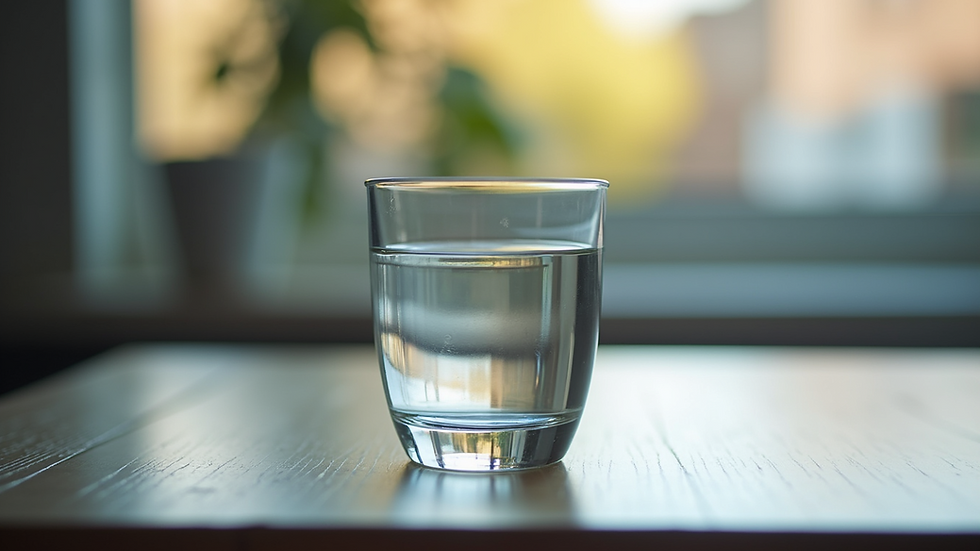The Importance of Hydration for Blood Draws
- Tequella Arkadie

- Aug 14
- 2 min read
Updated: 2 days ago
Proper hydration is vital for your overall health. It becomes especially important when getting a blood draw. When well-hydrated, your blood volume increases, which makes it easier for healthcare professionals to find a vein. Statistics show that proper hydration can reduce the number of attempts needed to draw blood by up to 50%, creating a faster procedure and minimizing discomfort.
Additionally, staying hydrated helps ensure that your blood is less thick, which can lead to more accurate test results. Research indicates that dehydration can thicken your blood, potentially affecting the outcomes of tests like blood glucose or cholesterol levels. If you want reliable results, be sure to hydrate properly beforehand.
What Happens When You're Dehydrated?
If you arrive for a blood draw without sufficient hydration, several issues may arise. One of the most immediate concerns is that dehydration can make your veins less visible and harder to access. For example, healthcare providers might struggle to find a vein, leading to multiple attempts at drawing blood. This can be uncomfortable for you and frustrating for them.
Moreover, dehydration increases the risk of fainting or feeling dizzy during the procedure. A well-hydrated person is far less likely to experience lightheadedness. In some cases, healthcare providers may even need to delay your blood draw until you have rehydrated, which can postpone important medical decisions. For instance, a delay in getting critical lab results could impact the timing of necessary treatments.
Tips for Staying Hydrated
To ensure optimal hydration before your blood test, consider these straightforward tips:
Drink Water: Aim for at least 16 ounces of water in the hours before your appointment. This practice can significantly increase your blood volume, making the extraction process smoother.
Avoid Caffeine and Alcohol: These substances can dehydrate you, so try to steer clear of caffeinated drinks and alcoholic beverages before your blood draw.
Eat Hydrating Foods: Incorporate fruits and vegetables rich in water, like cucumbers, oranges, and strawberries, into your meals. These can help contribute to your overall hydration.
Plan Ahead: If you have a blood draw scheduled, begin increasing your fluid intake the day before. This gives your body ample time to hydrate effectively.
The Benefits of Proper Hydration
Staying hydrated not only makes the blood draw process easier but also has other health benefits. When you drink enough water, your body functions more efficiently. Proper hydration supports digestion, circulation, and even temperature regulation. This means that being well-hydrated can enhance your overall well-being.
Additionally, hydration plays a role in your skin health. Drinking enough water can help maintain skin elasticity and reduce dryness. So, while you prepare for your blood draw, you’re also doing your body a favor in other ways.
Final Thoughts
Staying hydrated before your blood draw is a simple yet powerful way to enhance your experience and improve the accuracy of your results. By dedicating time to drink enough water and avoiding dehydrating substances, you can make your healthcare provider's job easier and reduce any discomfort you may feel. The next time you have a blood draw scheduled, remember: hydration is essential for a smooth process and clear results!




Comments